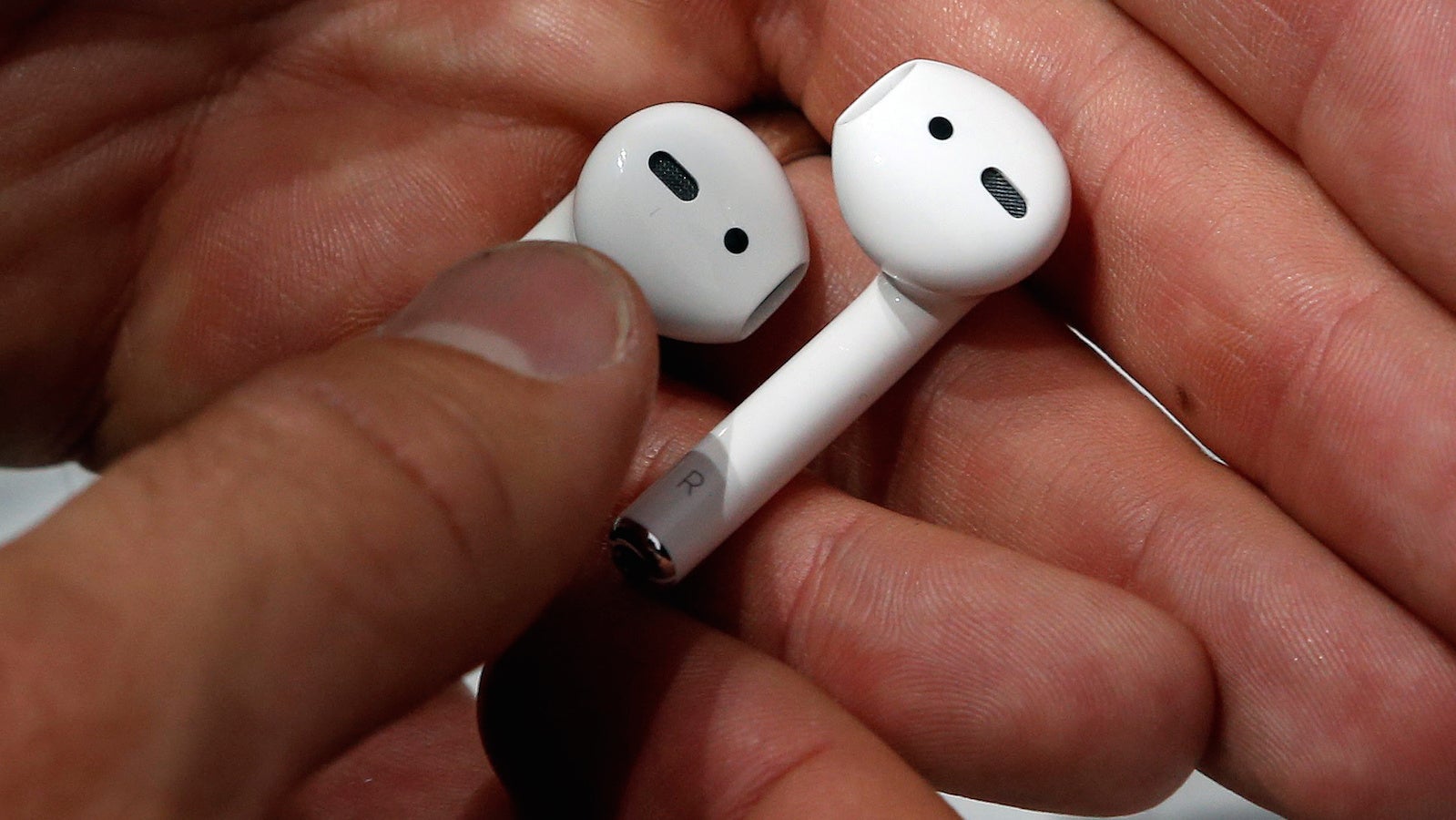Apple’s $550 headphones are a great way to sell more basic AirPods
The early buzz on Apple’s first-ever wireless over-ear headphones, AirPods Max, has largely centered on the eye-popping price tag. At $549, the headphones are a good deal more expensive than even other top-of-the-line options, such as Bowers & Wilkins PX7 (which costs $399) and BoseQuietComfort 35 II ($269).


The early buzz on Apple’s first-ever wireless over-ear headphones, AirPods Max, has largely centered on the eye-popping price tag. At $549, the headphones are a good deal more expensive than even other top-of-the-line options, such as Bowers & Wilkins PX7 (which costs $399) and BoseQuietComfort 35 II ($269).
Whether the AirPods Max are worth the extra cash remains to be seen—expect reviews to start rolling in when they become available on Dec. 15. But there’s a good chance that the AirPods Max will be a boon for Apple whether or not they’re a hit, driving sales of its cheaper but still pricey AirPods ($159) and AirPods Pro ($249).
As Nicole Nguyen reports for the Wall Street Journal, Apple is a master of the “Goldilocks” strategy, offering variations of a given product like the iPhone or iPad at a range of price points. This pricing sends a message to consumers that the product itself is attainable; the question isn’t whether you can afford an iPhone or Apple’s wireless headphones, but which level of luxury you can afford.
Also relevant is the phenomenon by which introducing a more lavish option of a product makes the first option look like a relative bargain. As Nguyen notes: “A seminal 1992 research paper looked at a $275 bread-baking appliance sold by Williams-Sonoma. When the retailer added a second model, similar to the first but larger and more expensive at $429, sales of the cheaper model doubled.” Peloton had a similar payoff this year when it debuted a souped-up stationary bike, the Bike+, for $2,495 in September and lowered the price of its original bike by $350, to $1,895. Apple may well find that the exorbitantly expensive AirPods Max make its basic AirPods appear more accessible.
To be sure, AirPods are already hugely popular. Sales of the wireless earbuds roughly doubled to $6 billion in 2019, according to analyst Toni Sacconaghi of Bernstein, who predicted that sales could reach $15 billion by the end of 2020, buoyed by the introduction of the AirPods Pro in October 2019.
But Sacconaghi also noted that Apple’s growth from AirPods could quickly taper off within a few years, precisely because so many people were becoming devotees so quickly. “Given AirPods’ extraordinarily steep adoption curve and rapid saturation of the iPhone installed base, we see a dramatic deceleration in AirPods revenue growth by 2021 or 22, to single digit growth rates or possibly lower,” he wrote in a note.
One way to ward off such an eventuality is to introduce a bunch of options in this category. The AirPods Max could prompt people to bite the bullet and buy a basic set, but current AirPod owners looking to up their audio game may also decide to keep adding to their collections. Next up: AirPods Sport?